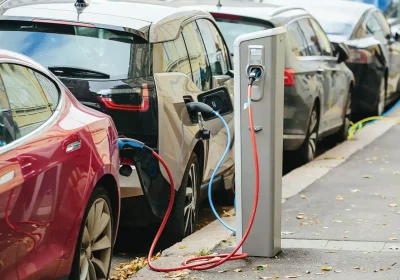Solar Panels and Electric Vehicles: A Perfect Pair
In an era where environmental consciousness and sustainability have become paramount, the combination of solar panels and electric vehicles (EVs) stands out as a perfect match. Solar panels harness the power of the sun to generate clean electricity, while electric vehicles offer an eco-friendly alternative to traditional gasoline-powered cars. Together, they create a synergy that can help individuals and communities reduce their carbon footprint, lower energy costs, and contribute to a greener future. In this article, we will explore the symbiotic relationship between solar panels and electric vehicles, highlighting the benefits and considerations for adopting this sustainable duo.
The Rise of Solar Power
Solar power has witnessed remarkable growth in recent years, and for good reason. Solar panels, often installed on rooftops or in open spaces, convert sunlight into electricity through photovoltaic cells. This clean and renewable energy source has several compelling advantages:
- Environmental Sustainability: Solar power is a clean energy source that generates no greenhouse gas emissions or air pollution, making it a significant contributor to reducing our carbon footprint and combating climate change.
- Reduced Energy Costs: Solar panels can significantly lower electricity bills by generating your electricity, reducing your reliance on the grid. In some cases, excess energy can even be sold back to the grid.
- Energy Independence: Solar power provides homeowners and businesses with a degree of energy independence, reducing vulnerability to power outages and fluctuating energy prices.
- Government Incentives: Many governments worldwide offer incentives, tax credits, and rebates to encourage the adoption of solar energy, making it a cost-effective choice for many.
- Increased Property Value: Solar panel installations can increase the resale value of homes and commercial properties, making them more attractive to potential buyers.
The Electric Vehicle Revolution
Electric vehicles, or EVs, represent a pivotal shift in the automotive industry. They use electricity stored in high-capacity batteries to power an electric motor, eliminating the need for gasoline or diesel. The advantages of EVs include:
- Zero Emissions: Electric vehicles produce no tailpipe emissions, resulting in cleaner air and reduced greenhouse gas emissions, especially when charged with renewable energy sources like solar power.
- Lower Operating Costs: EVs are more energy-efficient than traditional internal combustion engine vehicles, translating to lower operating costs and less money spent on fuel.
- Silent Operation: Electric vehicles run quietly, contributing to reduced noise pollution in urban areas.
- Energy Efficiency: EVs have regenerative braking systems that recapture energy during braking, increasing overall energy efficiency.
- Government Incentives: Many governments offer incentives, tax credits, and rebates to promote EV adoption, further reducing the initial purchase price.
A Match Made in Sustainability
The combination of solar panels and electric vehicles creates a synergistic relationship that maximizes environmental and economic benefits. Let’s explore how these two sustainable technologies complement each other:
- Green Charging: One of the primary advantages of solar panels is their ability to generate clean electricity. When you install solar panels on your property, you can use this renewable energy source to charge your electric vehicle. By doing so, you reduce your reliance on fossil fuels and minimize your carbon footprint even further.
- Cost Savings: Solar panels can significantly reduce your electricity bills. When you charge your electric vehicle using solar power, you essentially fuel your car for free once the initial installation costs are recouped. This can result in substantial long-term savings.
- Energy Independence: The pairing of solar panels and electric vehicles enhances your energy independence. You generate your electricity from the sun, reducing your dependence on external energy sources and insulating yourself from energy price fluctuations.
- Grid Stabilization: Excess electricity generated by solar panels during the day can be stored in EV batteries or fed back into the grid, contributing to grid stability and reducing strain on power plants during peak hours.
- Environmental Impact: By using solar power to charge your EV, you contribute to a significant reduction in greenhouse gas emissions. This eco-friendly combination aligns with global efforts to combat climate change and reduce air pollution.
Practical Considerations
While the pairing of solar panels and electric vehicles offers numerous benefits, there are practical considerations to keep in mind:
- System Size: To effectively charge your EV with solar power, you’ll need a solar panel system of adequate size. The size of the system will depend on factors such as your energy consumption, the type of EV you have, and your geographic location.
- Battery Storage: Consider investing in battery storage solutions to store excess solar energy for nighttime or cloudy days. This ensures that you have a consistent supply of renewable energy for your electric vehicle.
- Charging Equipment: Depending on your electric vehicle model, you may need to install specific charging equipment at your home. Ensure that your charging infrastructure is compatible with your EV and the capacity of your solar panel system.
- Maintenance: Both solar panels and electric vehicles require periodic maintenance. Keep your solar panels clean and well-maintained to maximize their efficiency, and follow the manufacturer’s maintenance guidelines for your EV.
- Incentives and Regulations: Research local incentives and regulations related to solar panel installations and electric vehicles. Some regions offer additional incentives or permits to encourage the adoption of these technologies.
Conclusion
The combination of solar panels and electric vehicles represents a harmonious partnership that aligns with the growing emphasis on sustainability and environmental responsibility. By generating clean energy from the sun to power your electric vehicle, you can reduce your carbon footprint, lower energy costs, and contribute to a cleaner planet. While there are practical considerations to address, the long-term benefits of this perfect pair make it a compelling choice for homeowners and businesses looking to embrace a greener future. As technology continues to advance and the world transitions toward a more sustainable energy landscape, the synergy between solar panels and electric vehicles is set to play a pivotal role in shaping a cleaner and brighter tomorrow.










